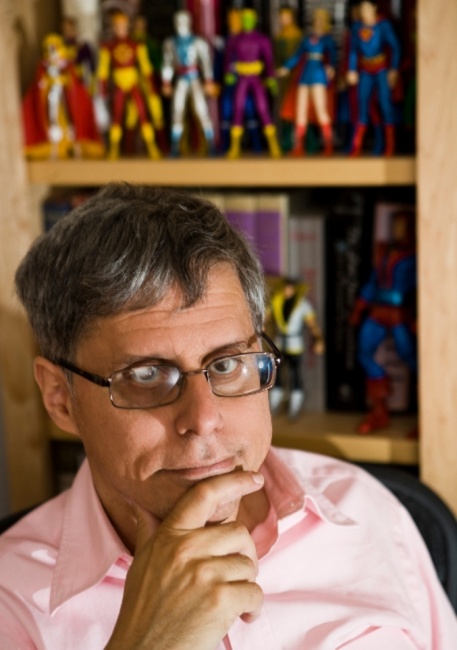This is another in a series of occasional columns by Paul Levitz for ICv2. In his newest column, Paul Levitz looks at the role of immigration in the comics industry.
With all the recent discussion of immigration, the role of immigrants in our society, and the pustule that erupted in Charlottesville, it seemed time to talk about the subject in the context of comics. Since most of the folks reading this column can be assumed to love comics, let’s take a step back and recall that the American comic book was largely a creation of immigrants and their children. And those immigrants were essentially people who would not be permitted to arrive here under the ‘tests’ now under discussion.
On the business side, comics were started mostly by a bunch of immigrant or first generation entrepreneurs: Max Gaines, Harry Donenfeld, Martin Goodman, John Goldwater and Louis SIlberkleit perhaps most notable among them. Much like their predecessors in Hollywood, they were a close bunch, not always inclined to the most civilized of business tactics, but their energy and hunger were critical to the birth of the form.
On the business side, comics were started mostly by a bunch of immigrant or first generation entrepreneurs: Max Gaines, Harry Donenfeld, Martin Goodman, John Goldwater and Louis Silberkleit perhaps most notable among them. Much like their predecessors in Hollywood, they were a close bunch, not always inclined to the most civilized of business tactics, but their energy and hunger were critical to the birth of the form.
On the creative side, the line-up is even longer and more impressive. If you go through the Eisner Hall of Fame with an eye to the immigration history of the participants, far more of our geniuses came from families newly arrived on these shores: start with Eisner himself, Kurtzman, Lee, Kirby, Siegel, Shuster, Infantino, Spiegelman and on through a bunch of this year’s inductees: Los Bros Hernandez, Prohias, and even Perez (did anyone else feel Sergio was glowing especially warmly at the depth of the Latino bullpen as he announced the winners this year?).
These people who so vitally added to our cultural life came from families that didn’t have large sums of money to ‘invest’ in America, or extraordinary laurels or education. They came from troubled places, with a few dollars in their pocket, and the name of a relative or fellow townsman who might put them up and get them started in America. This isn’t to argue against giving preference to the accomplished for immigration—by all means, let’s invite the world’s best to come join our party—but it’s to make the point that for the long run, if we apply only that standard we’re likely to cut ourselves off from future geniuses a generation or two down the road.
My favorite paper by my older, academic son was "Justice and Theory in Immigration in the Modern State," an examination of how leading political philosophers might have looked at immigration as an issue. Among other things, Philip quite handily went to the economic theory of utility emerging in the eighteenth and nineteenth centuries, and demonstrated that the wisdom of the time was "the greatest good for the greatest number should prevail." Held to that standard, immigration is a provable net gain for the American economy, and should be widely encouraged. His immigrant great-grandfather (and namesake) would have approved, I think.
Speaking of my grandfather, I was pleased to discover a few years ago that he and my paternal grandmother came over from the same shtetl (or village) in the Russian Pale of Settlement as Mitchell Siegel, Jerry’s dad. I wish I had known that while Jerry was alive, so we could have toasted them, and wondered exactly how close cousins we probably were, given the small and inbred Jewish communities of the 19th Century.
American comics are thriving on an outpouring of creativity from new and diverse voices: people whose families have long been here but have just had a cartoonist emerge, and people who’ve literally arrived here with a pen or pencil in hand, ready to create. And we’ve connected with wonderfully talented people in countries most Americans can’t find on a map, but whose work is delighting our audiences (take a bow in front of your Eisner trifecta, Sonny Liew).
I know public policy is complex, and systems are necessary. But fundamentally, comics—and this country—are better if we keep the doors reasonably open. Through it all, perhaps one fact shouldn’t be forgotten.
People are people.
It’s that simple.
The opinions expressed in this column are solely those of the writer, and do not necessarily reflect the views of the editorial staff of ICv2.com.

Column by Paul Levitz
Posted by Paul Levitz on August 17, 2017 @ 12:44 am CT



